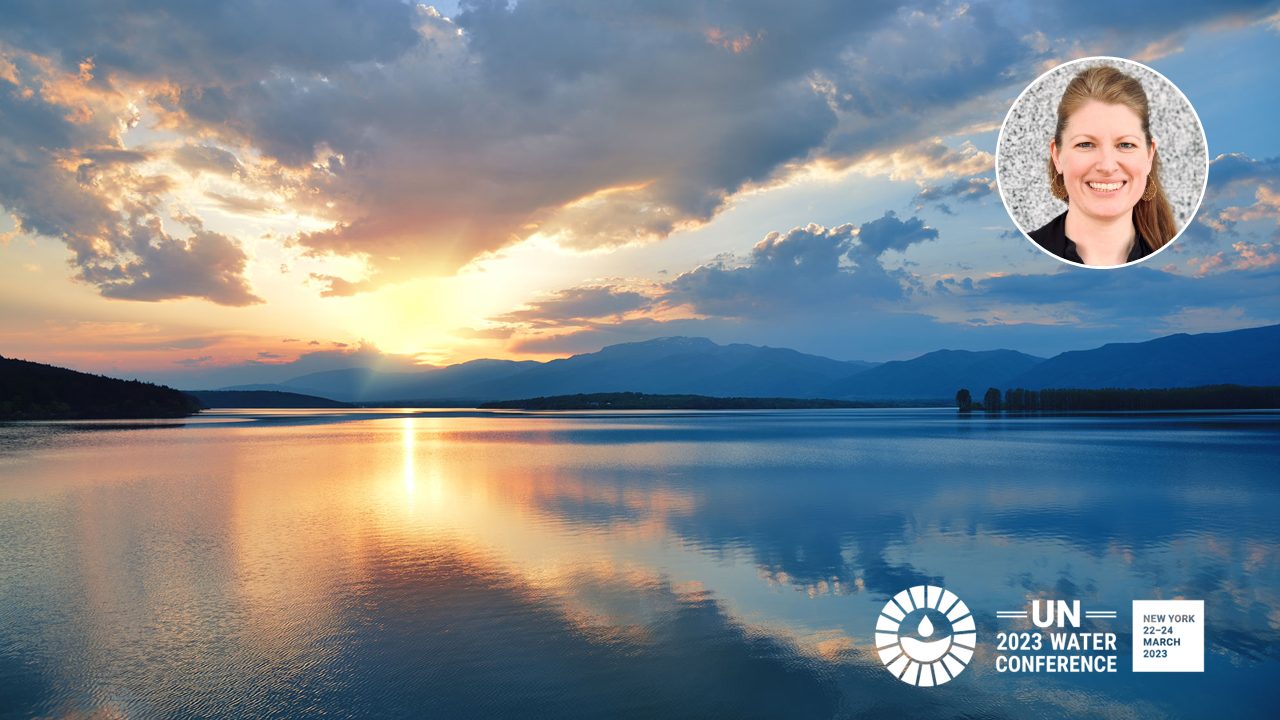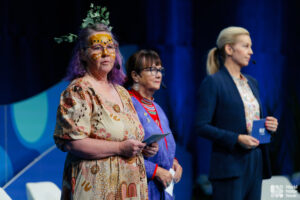IPCC report shows role of water in climate mitigation
One of the most important take-aways from the IPCC synthesis report is the new focus on water. SIWI’s Dr Malin Lundberg Ingemarsson explains the significance of this and how the research will be reflected in at the UN 2023 Water Conference, not least in sessions led by SIWI.
On 20 March, the Intergovernmental Panel on Climate Change (IPCC) presented the fourth and final instalment of its Sixth Assessment Report. This assessment gives an overview of what scientists now know about climate change and should guide decision-makers around the world in the coming seven years – the next assessment report is not due until 2030.
SIWI’s Dr Malin Lundberg Ingemarsson has led a landmark project on the role of water in climate mitigation. We asked her about the findings in the IPCC synthesis report and how that aligns with the climate messages SIWI will bring to the UN 2023 Water Conference, starting 22 March.
What are your first impressions of the IPCC synthesis report?
What really is striking about the Sixth Assessment Reports is how much attention is paid to water, in comparison to the Fifth Assessment in 2014. The synthesis report does not add new knowledge but summarizes all the reports that have been issued as part of this assessment cycle – three reports on the physical science, the impacts and adaptation strategies, as well as three special reports. They show how changes to the water cycle are triggered already by a modest increase in average temperatures and with more devastating consequences than expected. This demonstrates how water must be at the core of all climate strategies, for mitigation as well as adaptation.
Will this be reflected at the UN 2023 Water Conference starting on 22 March?
Absolutely! Some SIWI sessions will definitely highlight water’s crucial role in climate action, and I believe that many partners will communicate similar messages. What the IPCC is telling us is that we need to drastically change our climate policies and make them more water-centred. The impact of climate change is primarily felt in the form of water – through the pressure it puts on the water cycle, so that there will be more and more droughts and floods. The only way to tackle that is by changing how we manage water, so that we can mend the water cycle and reverse the dangerous trend.
The UN 2023 Water Conference can play a very important role here, by helping different actors and sectors rethink how they use and manage water. Many decision-makers are unsure of how to do this. That is why SIWI’s focus at the UN 2023 Water Conference is to share scientific knowledge, guidance and practical tools.
What will you be doing at the UN 2023 Water Conference?
In November we launched the first-ever summary of current research on the role of water in climate mitigation, The Essential Drop to Net-Zero: Unpacking Freshwater’s Role in Climate Change Mitigation, which was a collaboration between five institutions – GIZ, UNDP, the Potsdam Institute for Climate Impact Research, the Stockholm International Water Institute, and the Stockholm Resilience Centre.
Now the next step is to share how that knowledge can be put into practice, and this is also something we will be doing in sessions during the UN 2023 Water Conference.
The role of water in climate action
Malin Lundberg Ingemarsson will be presenting the report The Essential Drop to Net-Zero: Unpacking Freshwater’s Role in Climate Change Mitigation in three sessions at the UN 2023 Water Conference:
22 March: A new Generation of Urban Climate Solutions – learn more here.
23 March: Counting Fish from Forests for Food Security: Multidisciplinary Watershed Management – an online session that can be followed here.
24 March: NowNet session: Promoting Private-Public Partnerships – a vehicle towards fulfilling SDG 6 and climate Actions – learn more here.








